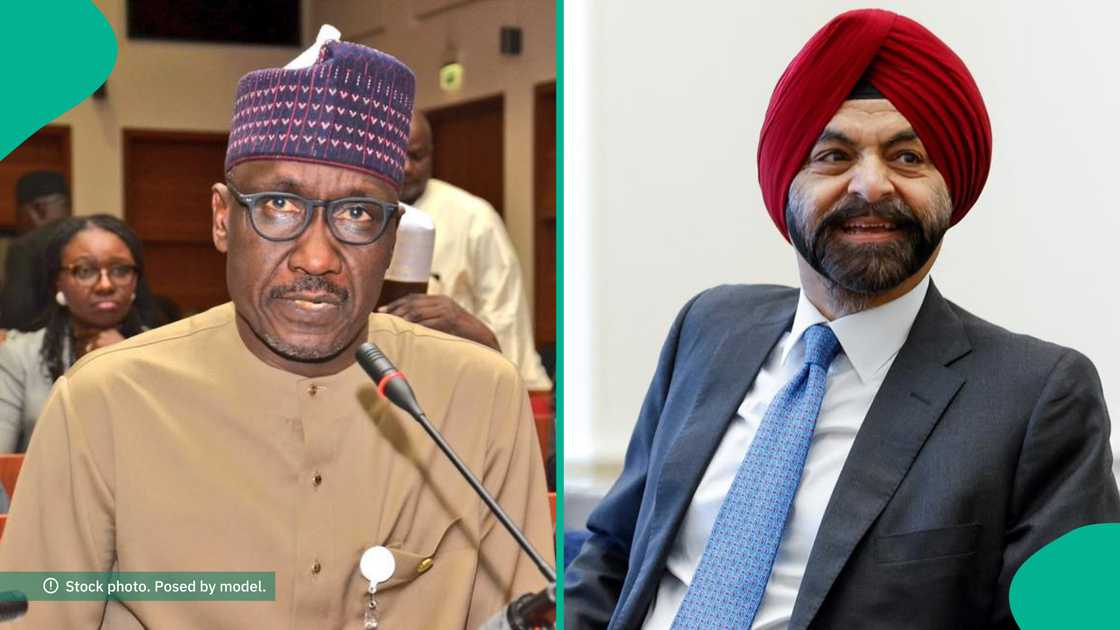World Bank faults NNPC’s report, says it is inconsistent, lacks details on revenue
- The World Bank has faulted reports submitted by the NNPCL to the Federal Account Allocation Committee (FAAC)
- According to the World Bank, the report lacked essential information about its activities and was inconsistent with the World Bank
- It added that the contractual investments for pledged oil revenues eventually declared by NNPCL were below expectation
Legit.ng journalist Zainab Iwayemi has over 3-year-experience covering the Economy, Technology, and Capital Market.
The Nigerian National Petroleum Company Limited's (NNPCL) submissions to the Federal Account Allocation Committee (FAAC) lacked essential information about its activities and were inconsistent, the World Bank

Source: UGC
This was disclosed in the bank's May 17, 2024, Accelerating Resource Mobilization Reforms (ARMOR) Report, according to a ChannelsTV report.
The World Bank claims that in addition to lower net oil revenues, NNPCL's opaque governance has seriously hampered the federation's ability to receive oil payments.
PAY ATTENTION: Legit.ng Needs Your Help! Take our Survey Now and See Improvements at LEGIT.NG Tomorrow
“Non-transparent reporting to the Federal Ministry of Finance (FMF) and the Federation Account Allocation Committee (FAAC), make it difficult for the authorities to oversee NNPCL’s performance, calculate anticipated oil and gas revenues and determine the difference between revenues received by the Federation and NNPCL’s total revenue.
“The reports submitted to FAAC by NNPCL are inconsistent and lack information such as details on pledged revenues, the tradeable value of crude oil, actual payments, and receipts from global trade, among others. As highlighted in the Nigeria Public Finance Review (2022),7 financial reporting is opaque due to quasi-fiscal activities such as in-kind revenues in the form of crude oil, and costs directly deducted from revenues that would have otherwise been transferred to the Federation Account,” the report said in part.
NNPC declares amount below expectation
The world’s apex bank cited a case where the NNPCL pledged 35,000 barrels of crude oil per day to the owners in exchange for a 20 per cent stake in the privately owned Nigerian Dangote Refinery.
World Bank said although the total value of the contractual investments for pledged oil revenues was estimated to be worth US$5.8 billion at end-2022, the amount eventually declared by NNPCL was below expectation.
“All production sharing contracts signed by NNPC state that all fiscal payments shall be made in-kind by allowing the NNPC to lift tax oil, royalty oil, and profit oil. In joint venture operations, in which the Federation owns 55 per cent or 60 per cent of the equity oil and gas, the NNPC handles crude oil and natural gas receipts on behalf of the Federation.
However, the share of oil production in these contracts amounts to more than two-thirds of the total oil production in Nigeria.
“Nigeria’s dependence on oil and gas revenue is a source of fiscal vulnerability. During the commodity-price boom of 1996-2014, the revenue-to-GDP ratio was 12 per cent, (albeit considerably lower than the Sub-Saharan Africa (SSA) average of 21.5 per cent at that time), while a decade later, revenue-to-GDP was just 7.7 per cent in 2023.
“Despite a 116 per cent increase in international oil prices between 2020 and 2022-2023, net oil and gas fiscal revenues transferred to the Federation fell in the same period from 2 per cent of GDP to 1.8 per cent of GDP due to falling oil production and the retention of fiscal transfers to finance the gasoline subsidy.
“Oil production fell from 1.8 million barrels per day (mbpd) in 2020 to 1.4 mbpd in 2022-2023 due to insecurity and a lack of investment and adequate maintenance. The cost of the gasoline subsidy increased over this period from 0.9 to 1.6 percent of GDP, deducted directly by the Nigeria National Petroleum Corporation Limited (NNPCL)5 and reducing the net oil revenue transfers to the Federation Account.”

Read also
APC group, CSO tackle Mele Kyari over persistent failure to restore Port Harcourt, Kaduna refineries
World Bank Opens Up on Subsidy Payment
Legit.ng reported that the World Bank has said that between 2021 and 2023, the federal government's foreign exchange subsidy strategy resulted in a substantial loss of N13.2 trillion in lost revenue.
The government reportedly lost N2 trillion in 2021, N6.2 trillion in 2022, and N5 trillion in 2023.
The amount of money lost resulted from its emphasis on controlling the naira's value in relation to the dollar on the official exchange market while permitting a fair market value price on the black market.
PAY ATTENTION: Сheck out news that is picked exactly for YOU ➡️ find the “Recommended for you” block on the home page and enjoy!
Source: Legit.ng





